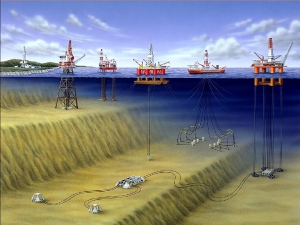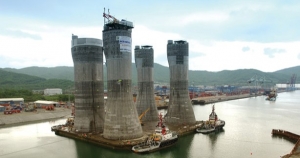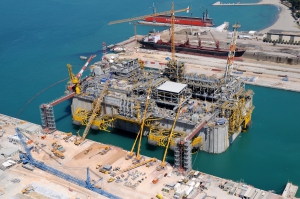
Napta
NAPTA Company is committed to providing reliable and quality Asset Integrity and Process Safety services to the highest possible standar
The NAPTA’s Planning & Scheduling Project Guide sets out the steps to be taken and provides guidelines for preparing, reviewing and monitoring schedules.
What is Cost Engineering? Anyone who has participated in large and complex projects will understand the importance of Cost Engineering. The E&P Company's continued success depends on the ability to deliver projects predictably on time and on budget. The Cost Engineering services plays a key role in achieving this goal.
Experience has frequently shown that poorly assembled cost estimates result in misunderstandings and omissions leading to considerably higher or lower estimates than subsequently proven actual costs. A ‘too high’ estimate can result in unnecessary project cancellation and lost opportunity or wasted time and resources. Conversely, investment in a sub-economic project can result if an estimate is ‘too low’.
In NAPTA, Project Services covers the disciplines Cost Estimating, Cost Engineering, Planning & Scheduling and Strategic Decision & Risk Management.
NEW YORK (Bloomberg) -- Crude rose to a three-week high after Kuwaiti comments bolstered optimism that OPEC and its partners will extended output curbs.
Constructability entails the process of developing and determining the most optimum construction methodologies to be applied for a project in consideration of the projects’ technical characteristics and possible design options, affected by environmental conditions such as site location(s), economic and political circumstances (location factors), cost and schedule and quality requirements.
Modularization is essentially a strategy for transferring man-hours from the construction site to one or several fabrication yards. Through this service, potential benefits can be achieved for ‘Costs’, ‘Schedule’ and ‘HSE’ or combination of all three.
System Engineering is an interdisciplinary field of engineering and engineering management that focuses on how to design and manage complex systems over their life cycles. At its core, System Engineering utilizes systems thinking principles to organize this body of knowledge. Issues such as requirements engineering, reliability, logistics, coordination of different teams, testing and evaluation, maintainability and many other disciplines necessary for successful system development, design, implementation, commissioning and start-up and ultimate decommission become more difficult when dealing with large or complex projects.
Competitive Scoping is a scalable framework that guides the Upstream Projects’ Leadership Team to use target setting and integrate discipline contributions (e.g. surface and sub-surface engineering disciplines, wells, project services, project execution, supply chain and technology) to create a competitive concept that has been built up from a minimum technical scope.
NAPTA in conjunction with its international business partners has extensive experience in building petroleum economics models and performing analysis for a worldwide range of petroleum fiscal systems, using the Discounted Cashflow Method (DCM). These models take petroleum field data for cost and production, and global data as oil and gas prices and inflation into account and return cashflow and economics performance indicators in line with the customer requirements. Graphics for presentation of cashflow features and specified sensitivities. Using these models, NAPTA may carry out all the necessary analysis as required for evaluation of petroleum assets, bid and negotiation analysis, and project investment analysis. Any analysis takes account of exploration and appraisal risk as applicable for the specific asset.
"Our expertise is about how to create and deliver
'The Value' in the Upstream E&P projects."
NAPTA has globally proven best practices how to develop, deliver and operate Upstream E&P opportunities and projects in the Oil and Gas Industries.
Contact Us
- Floris Arntzeniusplein 22, 2597 SP The Hague the Netherlands.
- +31 (0)70 211 1312
- info@napta.co
- NAPTA International B.V.
- Contact Form
- Find Us on the Map












